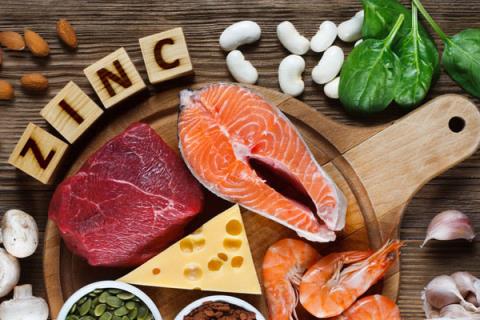Zinc Supplements for Pregnant Women: Benefits, Dosage, and Food Sources

Zinc is an essential mineral naturally found in many foods. It plays a vital role in daily bodily functions and is especially crucial during pregnancy. For expectant or soon-to-be mothers, understanding the effects of zinc and proper prenatal nutrition is key. Proper zinc supplementation for pregnant women ensures a healthy pregnancy and supports fetal development.
Table of Contents
- 1. Why Zinc is Important for Pregnant Women?
- 2. When Should Pregnant Women Take Zinc?
- 3. How Much Zinc is Enough for Pregnant Women?
- 4. Risks of Excessive Zinc Intake During Pregnancy
- 5. Signs of Zinc Deficiency in Pregnancy
- 6. Top Zinc-Rich Foods for Pregnant Women
1. Why Zinc is Important for Pregnant Women?
Zinc is known for supporting a healthy immune system and promoting normal growth. It also aids in DNA metabolism and wound healing. During pregnancy, zinc is essential for both the mother and the developing fetus.
1.1. Benefits of Zinc for Pregnant Women
- Strengthens the immune system.
- Prevents uterine infections.
- Balances hormones.
- Supports placental development.
1.2. Benefits of Zinc for the Fetus
- Promotes cell growth and DNA production.
- Supports brain development and future learning abilities.
- Provides structural support to cellular proteins.

Zinc supplementation is crucial for a healthy pregnancy
1.3. Zinc's Role in Preventing Pregnancy Complications
Zinc supplementation during pregnancy can help prevent:
- Diarrhea: Reduces the risk of diarrhea in infants during the first year of life.
- Colds: Zinc lozenges may reduce the duration of colds in pregnant women.
- Depression: Zinc intake is linked to a lower risk of depression during pregnancy.
- Premature Birth: Zinc supplementation may reduce the risk of preterm birth.
2. When Should Pregnant Women Take Zinc?
Zinc supplementation is vital throughout pregnancy and breastfeeding. It is also recommended to start zinc supplementation before conception to ensure optimal egg quality and DNA programming.
3. How Much Zinc is Enough for Pregnant Women?
The Recommended Daily Intake (RDA) for zinc during pregnancy varies by age:
| Age Group | Pregnancy | Breastfeeding |
|---|---|---|
| 14-18 years | 13 mg/day | 14 mg/day |
| 19+ years | 11 mg/day | 12 mg/day |
Note: Do not exceed 40 mg/day for adults or 34 mg/day for teens.
4. Risks of Excessive Zinc Intake During Pregnancy
Excessive zinc can cause nausea, vomiting, diarrhea, and stomach pain. Pregnant women should avoid exceeding the recommended daily intake.
5. Signs of Zinc Deficiency in Pregnancy
Common signs include:
- Reduced appetite.
- Weakened immunity.
- Impaired fetal development.
- Poor sense of taste.
6. Top Zinc-Rich Foods for Pregnant Women
Here are some excellent dietary sources of zinc:
| Food | Zinc Content |
|---|---|
| Dark Chocolate | High in zinc, low in sugar. |
| Lentils | Rich in zinc, protein, and fiber. |
| Pumpkin Seeds | High in zinc and omega-3 fats. |
| Chickpeas | Good source of zinc and protein. |
| Sesame Seeds | 7.8 mg of zinc per 100 g. |
| Kidney Beans | Regulates blood sugar and provides zinc. |
| Yogurt | 1.4 mg of zinc per cup. |
| Lamb/Beef | Best sources of zinc for meat-eaters. |
| Cashews | 1.6 mg of zinc per 30 g. |

Include these foods in your diet to meet your zinc needs
Zinc Supplements in Pill Form
If dietary intake is insufficient, zinc supplements in pill form can be taken under medical supervision. Prenatal vitamins containing zinc are a safe option for pregnant women.
Ensuring adequate zinc intake before, during, and after pregnancy is essential for both mother and baby. Always consult your doctor for personalized advice on zinc supplementation.
Doctor Truong My Linh